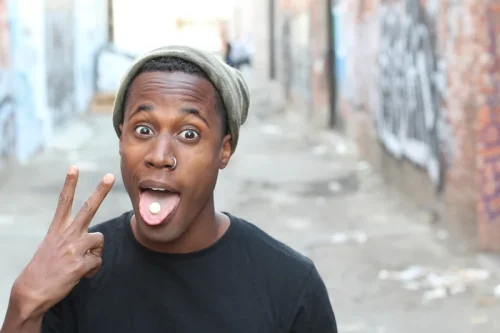When She Won’t Answer A Direct Question

People who enjoy chatting with you will typically let the dialog flow naturally from one topic to the next. But if you notice the other person repeatedly steering the discussion in a new direction, it could indicate they’re trying to avoid certain subjects or wrap up the interaction. Signs someone doesn’t want to talk to you include paying attention to how they answer your questions. If they are short or vague, they may not be interested in the conversation.
- Although making eye contact has numerous benefits, social anxiety is a primary reason people avoid it.
- Well, there are several reasons, both psychological and cultural, that could explain this behaviour.
- Insecurity or shyness is one of the most common reasons for avoiding eye contact.
- They might use phrases like “Im not sure” or “its hard to say” to deflect your question.
Fear of Being Disliked

This technique can be employed for a variety of reasons, including protecting oneself from controversy, avoiding responsibility, or steering the conversation in a different direction. Have you ever found yourself in a conversation where you ask a question and the person you’re talking to doesn’t give you a direct answer? You might find yourself asking a question that you genuinely want an answer to, but the other person either skirts around the topic or ignores your query altogether.

What It Means When Someone Avoids Eye Contact When Talking
They are probably aware that they aren’t making much eye contact, and it’s not helpful for you to make them more self-conscious about it. Eye contact is a sign of engagement and rapport, so if someone breaks eye contact, they might have lost interest in the conversation and feel ready to move on. If you sense that the conversation has slowed down and the other person keeps looking elsewhere, they may not be interested in talking with you any further. You may have heard that liars avoid eye contact because they feel too guilty or self-conscious to meet your gaze. But it’s important to know that a person who can’t or won’t make eye contact with you isn’t necessarily hiding something.
Eye contact body language (Why it matters)

It’s the fear that our thoughts, our feelings, our needs might be too much for others to handle. That’s because they’re doing everything they can to avoid feeling upset. They see arguments as a personal attack, not as a chance to understand someone else’s point of view or learn something new. A person receiving this response may question their own reasonableness and wonder whether their complaint is valid drug addiction or if they are being over the top in some way. This can also be a form of gaslighting, in which a person finds their version of reality fundamentally questioned. When struggling to hear feedback, a person may cut off a conversation or rush through it.
- In the workplace, conflict avoidance can hinder career progression and team dynamics.
- Another major benefit of rehearsing is it is a form of exposure therapy.
- When someone avoids eye contact with you, it’s usually a sign they don’t want to engage in a conversation.
- Understanding these underlying reasons can foster clearer communication and reduce misunderstandings.
- In challenging discussions, there’s often the need to take ownership of a problem or mistake.
- In today’s fast-paced, interconnected world, conflict avoidance has become increasingly prevalent.
What Conflict Avoidance Looks Like

For them, disagreements are like horror movies – they’re way too scary and best avoided. Let’s dig into this and uncover the top 10 traits usually found in people who would rather run a mile than have a difficult chat. Keeping their distance is how they maintain a sense of emotional autonomy.

Limiting Your Interactions
With patience and understanding, they may become more comfortable opening up to you. The bottom line is that if communication feels off or one-sided with someone who used to be quite responsive, there may be an underlying issue worth addressing. But don’t jump to conclusions—sometimes life just gets busy or stressful, and people’s communication habits change temporarily. If when someone avoids conversation radio silence continues for a long time, it may be time for an open and honest (but polite) conversation about where you both stand. When someone avoids eye contact with you, it’s usually a sign they don’t want to engage in a conversation.
It’s essential to understand the different types of responses to questions to ensure effective communication. In this article, we will dive into the phenomenon of indirect answers, explore the reasons behind them, and discuss strategies to overcome them. Fear and avoidance of eye contact are prevalent among individuals with social anxiety disorder (SAD) and nonpatients alike. The GARS shows promise in assessing gaze anxiety, revealing the underlying reasons for eye contact avoidance. Noticing someone evading eye contact prompts questions about their desire to disengage. This could stem from deliberate avoidance, signifying disinterest, or a deeper issue such as social anxiety, where individuals fear judgment from others.

Leave a Comment